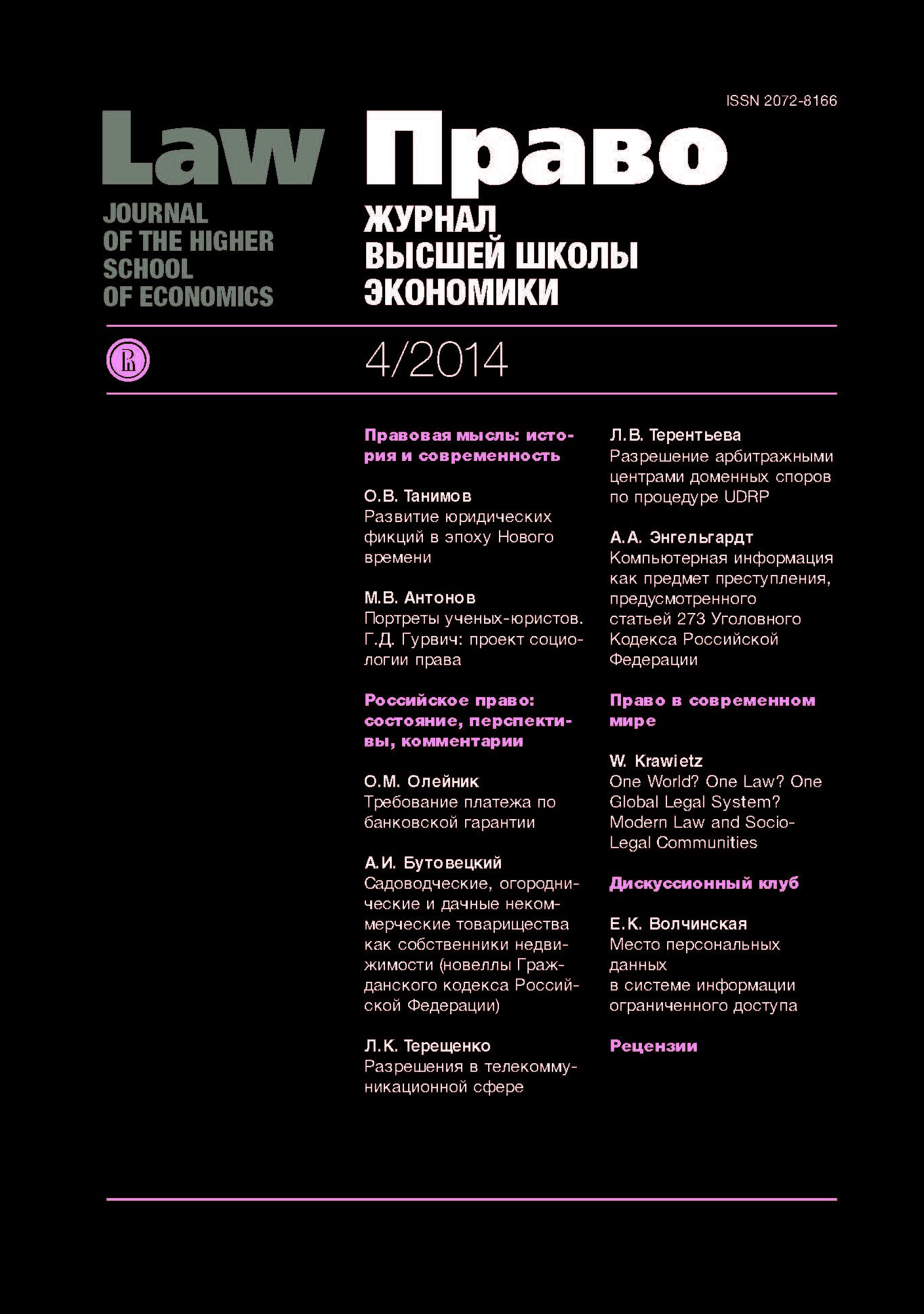The Constitutional Status of the President of the Federative Republic of Brazil as Head of State — a Member of the BRICS
Аннотация
This article is devoted to the analysis of the constitutional status of the President of Brazil, as guaranteed by the Brazilian constitution, vis-à-vis the statuses of heads of states of other BRICS countries. Although the president’s position is outlined in the national constitution, it takes into account the country’s federative structure: the president (Presidente da República) acts as the representative of the union internally and represents Brazil abroad. The presidential term of four years is one of the shortest when compared to other BRICS countries. The president is elected directly by the Brazilian people. Direct election is more typical in countries with presidential governments, where the direct mandate provides a higher degree of legitimacy to the executive office. The office term can end early for three reasons: 1) conviction for the commitment of crimes de responsabilidade (crimes of malversation) by resolution of the Federal Senate, or by sentence of the Federal Supreme Court on commitment of infrações comuns (common criminal offenses); 2) in the event of death, resignation, loss to the right to vote or loss of citizenship; 3) resolution of the National Congress to declare the office vacant. In Brazil, as well as in India and South Africa, the president is the country’s chief executive. The president’s powers are classified into three categories: deriving from his/her role as the head of a state, the head of government, or the head of federal administration. The President of Brazil, like the president of Russia, has the strongest position of authority in the higher bodies of the governmental system.
Литература
Acquaviva M.C. (1987) Teoria geral do estado. Sao Paolo.
Accioli W. (1981) Institutes del dereito constitucional. Rio de Janeiro.
Afonso da Silava J. (2009) Comentátio contextual á Constituiçâo. Sao Paolo.
Afonso da Silva J. (1990) Curso de dereito constitucional. Sao Paolo.
Araujo L.A.D., Serrano Nunes j. V, (2004) Curso de dereito constitucional. Sao Paolo.
Chacon V (1987) Vida e Morte das Constitutes Brasileiras. Sao Paolo.
Cherkasov A.I. (2002) Institut glavy gosudarstva i ego vidy [Institute of the Head of State and its varieties]. Chirkin V.E. (ed.) Sopostavitel'noe konstitutsionnoe pravo [Comparative constitutional law]. Mezhdunarodnie otnosheniya, Moscow, 448 p..
Cerqueira M. (1987) Constituiçâo e o Direito Anterior: o Fenomeno da Recepçâo. Estudos de Direito Constituinte. Anteprojetto da comissau Afonso Arinus. Commentado por Duarte Pereora O. Brasilia. Constituiçâo da República Federativa do Brasil.
Grau E.R., Cunha S.S.da (2003) Constitucional em homenadem a Jos é Afonso da Silva. Sao Paolo.
Chirkin VE. (1997) Prezidentskaya vlast' [President's Power]. Gosudarstvo i pravo, no 5, pp. 15-23.
Guimarâes Teixeira Rocha M.E., Costa Ribeiro Bastos R. (2003) Os militares e a ordem constitucional republicana brasileira: de 1891 a 1964. La Constitución es una cosa; los militares somos otra. Revista Latino-Americana de Estudios Constitucionais, no 1, pp. 425-446. DOI: https://doi.org/10.5102/prismas.v1i1.157
Kutafin O.E. (2013) Glava gosudarstva [Head of State]. Prospekt, Moscow, 560 p.
Pilatti A. (2008) A Constituinte de 1987-1988. Progressistas, Conservadores, Ordem Econòmica e Regras do Jogo. Rio de Janeiro.
Projeto de Constituiçâo. Parecer do relator B. Cabral sobre as emendas ofrecidas em plenàrio. Brasília. 1988.
Ramos Tavares A. (2013) Curso de Direito Constitucional. Sao Paolo.
Reale M. (1992) De Tancredo a Collor. Sao Paolo.
Rodrigues E. O (1993) Veto no Direito Comparado. Sao Paolo.
Roure A. de. A (1979) Constituinte Republicana. Vol. 1. Brasília.
Russomano R. (1976) Dos poderes Legislativo e executivo. Rio de Janeiro.
Trigueiro O. O (1976) Novo presidencialismo. As tendências natualis do direito público: Estudos em homenagem ao Professor Afonso Arinos de Melo Franco. Rio de Janeiro.
Valladâu H. (1980) Historia do Direito Especialmente do Direito Brasileiro. Rio de Janeiro.
Vianna Lopez J.A. A. (2008) Carta da Democracia. O processo constituinte da ordem pùblica de 1988. Rio de Janeiro.
Copyright (c) 2014 Право. Журнал Высшей школы экономики

Это произведение доступно по лицензии Creative Commons «Attribution-ShareAlike» («Атрибуция — На тех же условиях») 4.0 Всемирная.


















